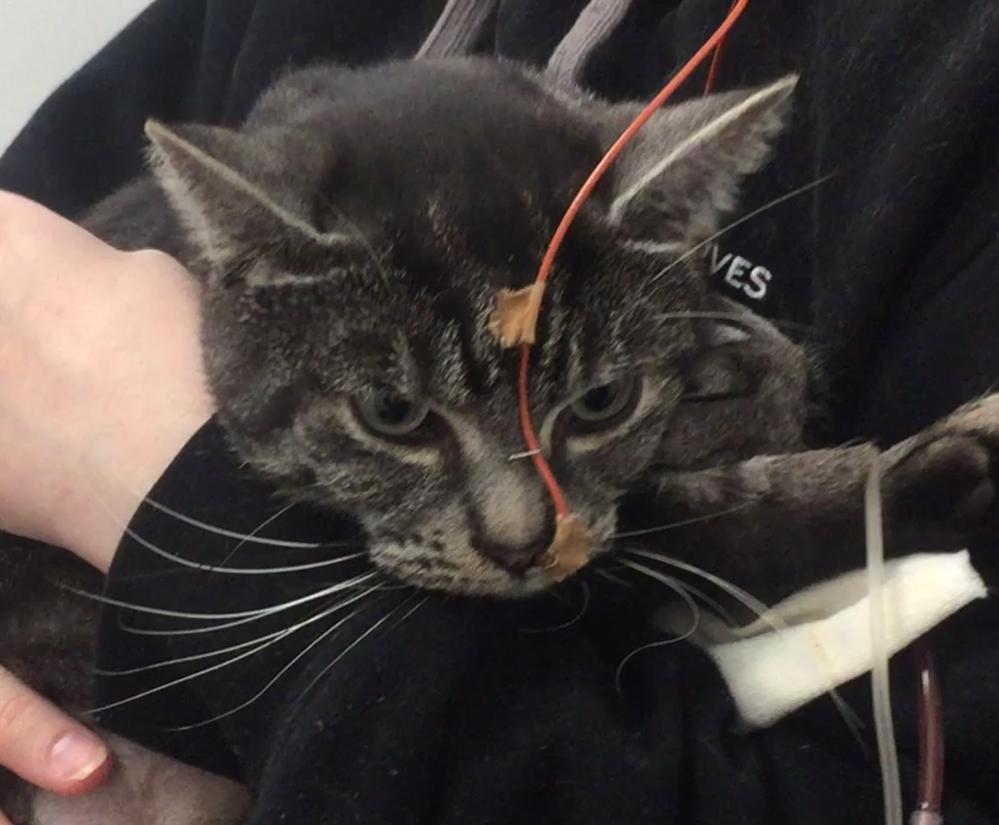In many ways blind cats are surprisingly "normal" but there are some adaptions that would be worth bearing in mind. Primarily this revolves around providing the cat with non-visual sensory information to allow them to navigate their world.
Play
Blind cats love to play and "hunt" just as much as their sighted kin so when choosing toys make sure there is something non-visual to allow the cat to track the "prey". Go for toys that have noises (e.g. bells, crinkles) or smells (catnip infused).
Navigation
Touch and smell become all-important for this. Try to keep their things (litter box, food dishes) in the same locations as much as possible. You mention that given the other complications of your cat's condition that it's important to for him to have his own litter box for monitoring. I don't know the layout of your home but would it be possible to place his food and 'box in a separate room and use a chip reader cat flap to keep the other cats out? It might take a bit of work to get him to learn where the flap is but using scents and something textured on the floor you might be able to do this. Obviously you'll have to do the same the other way around to prevent him from accessing theirs
If you pick the blind cat up and put them down in a different location make sure that the other location is somewhere they can recognize through touch or smell - place them near their litter box or food or onto a different textured surface (that they can recognize) so that they can re-orient themselves.
Speaking of picking up remember to make sure they know you are there before you scoop them up - say something and give them a gentle pet. Otherwise you risk them freaking out!
Interaction
And while we are on the topic of freak outs it's going to take some time for him to adjust to the sight loss and this might make him a bit skittish and easily startled - depending on the cat they might get scared or even aggressive. I'm guessing either would be bad for a kitty with a history of heart problems! So try and avoid sudden loud sounds or anything that might startle them, talking to them can help them orient themselves and also provide comfort.
Balconies
I presume these are outdoor balconies? Sorry to say but you're probably going to have to keep him indoors - cats can learn to navigate an environment extremely well when blind but with the best will in the world some of that learning is going to involve falling off things to learn where the limits are - and with a balcony at lethal height that's not going to end well.
His righting reflex should be largely unaffected as it's mostly done using the vestibular apparatus in the inner ear (Fun Fact: this is why cats are rubbish at navigating and moving in microgravity - they are completely unable to distinguish "up" and "down" without the info from the vestibular system!) so he'll be fine with small indoor falls of the sort that wouldn't harm him anyway but he won't be able to see a big fall coming until it's too late.
If you want to give him some fresh a walk on a leash or a harness is a sensible option.
